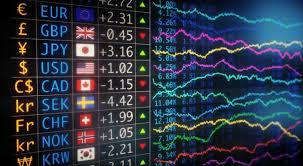
Unlocking the Secrets of Forex Day Trading Strategies
Forex day trading is an art and science that has attracted numerous traders around the globe. With the right strategies, it is possible to leverage small market movements to make profit. In this article, we will explore effective forex day trading strategies that can help you improve your trading skills. Additionally, for those interested in the trading environment in the Middle East, check out the forex day trading strategies Best Saudi Brokers to find suitable partners for your trading journey.
Understanding Forex Day Trading
Forex day trading involves the buying and selling of currency pairs within the same trading day. The primary goal is to profit from short-term price movements. Unlike long-term traders, day traders close their positions before the market closes, thus avoiding overnight risks. Day trading requires a sound understanding of market dynamics and a keen eye for details.
Key Components of Successful Day Trading
1. Market Analysis
To be a successful day trader, one must understand the fundamentals of market analysis. There are two primary methods of analysis: fundamental and technical analysis.
- Fundamental Analysis: This method involves analyzing economic indicators, news releases, and geopolitical events that could affect currency values. Traders who use this method need to stay updated with financial news.
- Technical Analysis: Technical analysts use historical price data to predict future movements. They look for patterns and trends using charts and technical indicators, such as moving averages, RSI, and Fibonacci retracements.
2. Risk Management
Risk management is critical when engaging in day trading. Without a solid risk management strategy, even the most skillful traders can experience significant losses. Here are a few techniques for risk management:
- Setting Stop-Loss Orders: A stop-loss order is a predetermined level at which a trader will exit a losing position. This helps limit potential losses.
- Position Sizing: Knowing how much to risk on a particular trade is vital. Most traders risk only a small percentage of their trading capital on any single trade.
3. Trading Psychology
Day trading tests not only your analytical skills but also your emotional stability. Traders must develop the right mindset to succeed. Here are some psychological aspects to keep in mind:

- Discipline: Maintaining discipline is essential to stick to your trading plan and avoid emotional trading.
- Patience: Successful day traders know when to wait for opportunities and avoid jumping into trades out of boredom or frustration.
Popular Day Trading Strategies
1. Scalping
Scalping is one of the most popular day trading strategies, aiming to make multiple small profits on minor price changes throughout the day. Traders execute numerous trades, usually holding each position for just a few minutes. Scalping requires quick decision-making and a high level of focus.
2. Momentum Trading
Momentum traders look for currencies that are strengthening or weakening significantly. The strategy involves entering a position when momentum builds and exiting once the trend shows signs of reversal. News events often create substantial momentum and can be exploited by traders.
3. Breakout Trading
Breakout trading involves identifying key support and resistance levels and entering a trade when the price breaks above resistance or below support. This strategy assumes that once the price breaks a significant level, it will continue in that direction for a time.
4. Range Trading
Range trading is employed when the market is moving sideways, with clear support and resistance levels. Traders buy when the price approaches support and sell when it approaches resistance. This strategy works best in a stable market where prices oscillate within a defined range.
Tools and Resources for Day Traders
Utilizing the right tools can make a significant difference when day trading. Here are some essential tools and resources:
- Trading Platforms: Having access to a reliable trading platform with fast execution and advanced charting capabilities is crucial for day traders.
- Economic Calendars: Economic calendars provide vital information on upcoming news releases and economic events that can impact currency prices.
- Trading Journals: Keeping a trading journal helps in analyzing past trades, identifying strengths and weaknesses, and continuously improving your strategy.
Conclusion
Forex day trading can be a lucrative venture for those who approach it with knowledge and strategy. By understanding market dynamics, implementing sound risk management practices, and continuously refining your trading methods, you can enhance your chances of success. Remember, trading is not just about making profits but also about managing risks and honing your skills over time. Whether you’re just starting or looking to improve, the journey to becoming a proficient day trader is one filled with continuous learning and adaptation.